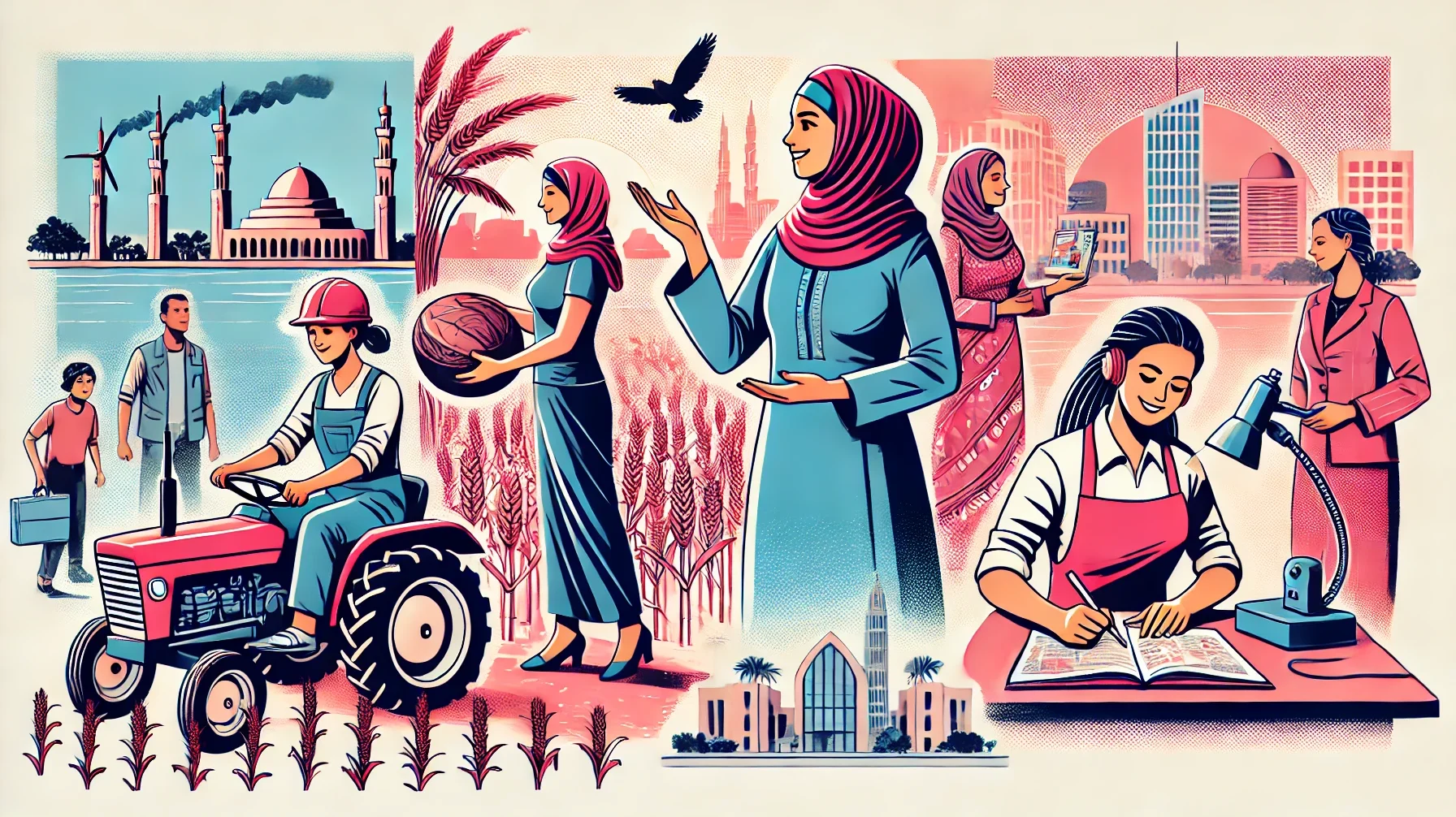A Gap in Egypt’s Women’s Movement
El Watan, Egypt, July 19
Western standards for women’s empowerment do not consistently succeed in all contexts when applied to Egyptian women. The criteria may hold value if the aim is to empower Egyptian women by acknowledging their crucial social roles and helping them advance without neglecting their responsibilities. Whether they are primary breadwinners, financial partners, or managing households, whether they are daughters, wives, mothers, or sisters, Egyptian women must navigate a distinct path. In this context, three stories of pioneering women who championed women’s issues in their individual ways come to mind. The first tale involves the late Nawal El Saadawi, an Egyptian feminist writer and activist whose influence on educated women seeking liberation cannot be understated, regardless of whether one agrees with her views. El Saadawi’s advocacy, often characterized by a rebellious streak, struck a chord with Egyptian women eager for change. I once heard El Saadawi recount that the illiterate women she encountered in her village of Kafr Tahla were more receptive to her ideas than their educated urban counterparts. She attributed this openness to the fact that these village women had not been tainted by the orthodox and conservative interpretations often propagated through religious texts, outdated stories, or ancient events. In contrast, educated women might absorb these through reading or media, further reinforced by teachings in mosques and churches. To El Saadawi, uneducated women were unencumbered by the restrictive notions propagated by others, free from the male-dominated ideas that didn’t consider their immediate interests. Such perspectives aim to integrate women into contemporary society, rescuing them from marginalization and involving them in meaningful work. Instead, these notions cling to outdated perceptions, ignoring that society has moved forward, leaving behind many once-solid opinions. The second story comes from writer Amina Shafiq, an advocate deeply involved with Egyptian civil society organizations. On numerous visits to the Egyptian countryside, she engaged with peasant women and educated girls. Shafiq recounted with humor how urban women would visit rural areas to teach women about their rights, often without understanding their basic needs—such as the simple yet crucial issue of sanitation. Shafiq expressed amazement at how these women coped without toilets in their homes, lasting until nightfall to relieve themselves in the fields. This was in stark contrast to their men, who could do so in the open during daylight. Although this harsh reality has improved in most villages, it serves as a stark reminder of the disconnect between women’s organizations’ agendas and the real needs of women on the ground. The third account involves Dr. Hoda Badran, a sociology professor at Helwan University who founded the Arab Women’s League and later led the Egyptian Women’s Union. Badran’s commitment extended beyond theoretical education; she also addressed practical needs. In North and South Sinai, she initiated small projects, like embroidery and shrimp peeling, providing local women with income-generating opportunities. Bedouin women, under her guidance, produced goods that not only imbued them with a sense of purpose but also helped meet their families’ needs. These stories collectively underscore a significant gap in the women’s movement in Egypt: a failure to account for the unique societal and living conditions of Egyptian women. This oversight is a flaw that needs immediate rectification. Women’s organizations must emphasize practical solutions alongside theoretical frameworks to genuinely improve women’s conditions in Egypt, especially given the country’s urgent need for such improvements. —Ammar Ali Hassan (translated by Asaf Zilberfarb)
Give the gift of hope
We practice what we preach:
accurate, fearless journalism. But we can't do it alone.
- On the ground in Gaza, Syria, Israel, Egypt, Pakistan, and more
- Our program trained more than 100 journalists
- Calling out fake news and reporting real facts
- On the ground in Gaza, Syria, Israel, Egypt, Pakistan, and more
- Our program trained more than 100 journalists
- Calling out fake news and reporting real facts
Join us.
Support The Media Line. Save democracy.



